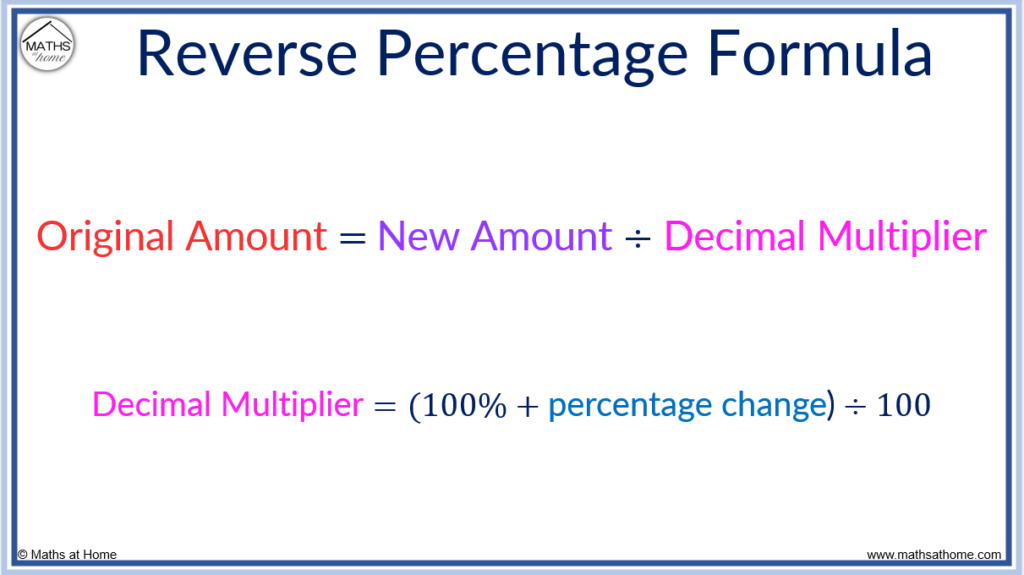
How to Calculate an Original Amount Using Reverse Percentages
Reverse percentages involve finding the original value from a known final value and percentage change. To reverse a percentage increase, divide the final amount by (1 + (Percentage Increase / 100)). To reverse a percentage decrease, divide the final amount by (1 - (Percentage Decrease / 100)).

Reverse percentage Teaching Resources
How to Calculate Reverse Percentages (Reverse Percentage Increases & Decreases) We're faced with a Reverse Percentage problem as soon as we are given the value of a number following either a percentage increase or a percentage decrease and we're asked to find what the number was, its initial value, before the increase (or decrease) took place.
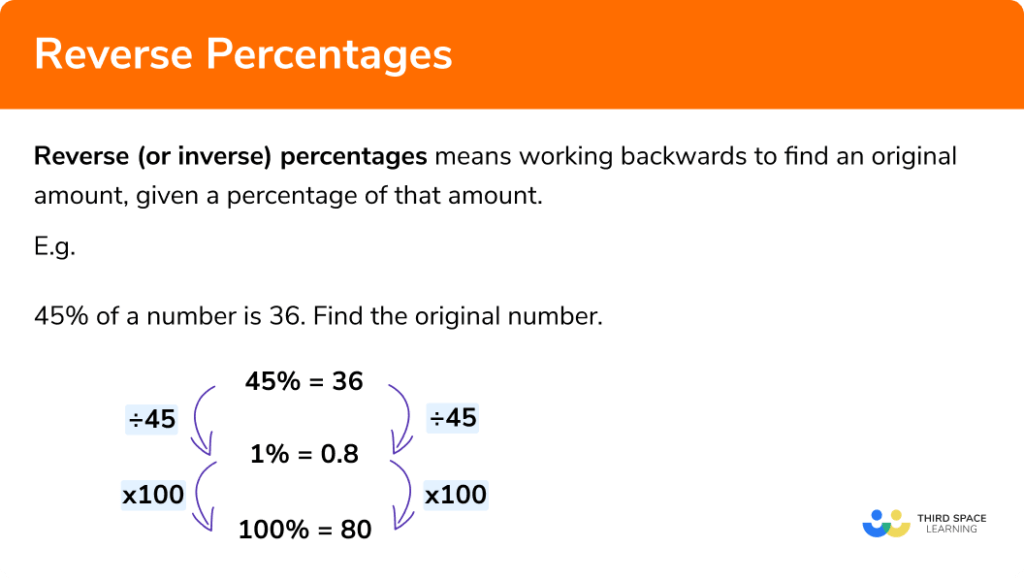
Reverse Percentages GCSE Maths Steps, Examples & Worksheet
1 Formula 2 How to Use 3 FAQs 4 Conclusion Formula To calculate the reverse percentage, you can use the following formula: Original Amount = (Result /Percentage) × 100 Where: Original Amount: The initial value you want to find. Result: The percentage increase or decrease. Percentage: The percentage change. How to Use

How to Calculate Reverse Percentage in Excel (4 Easy Examples)
You can use reverse percentage calculator in two ways. USER INPUTS. You can enter the final value and the percentage to the input boxes, select the type of percentage, and click on the "CALCULATE" button. The result and explanations appaer below the calculator.
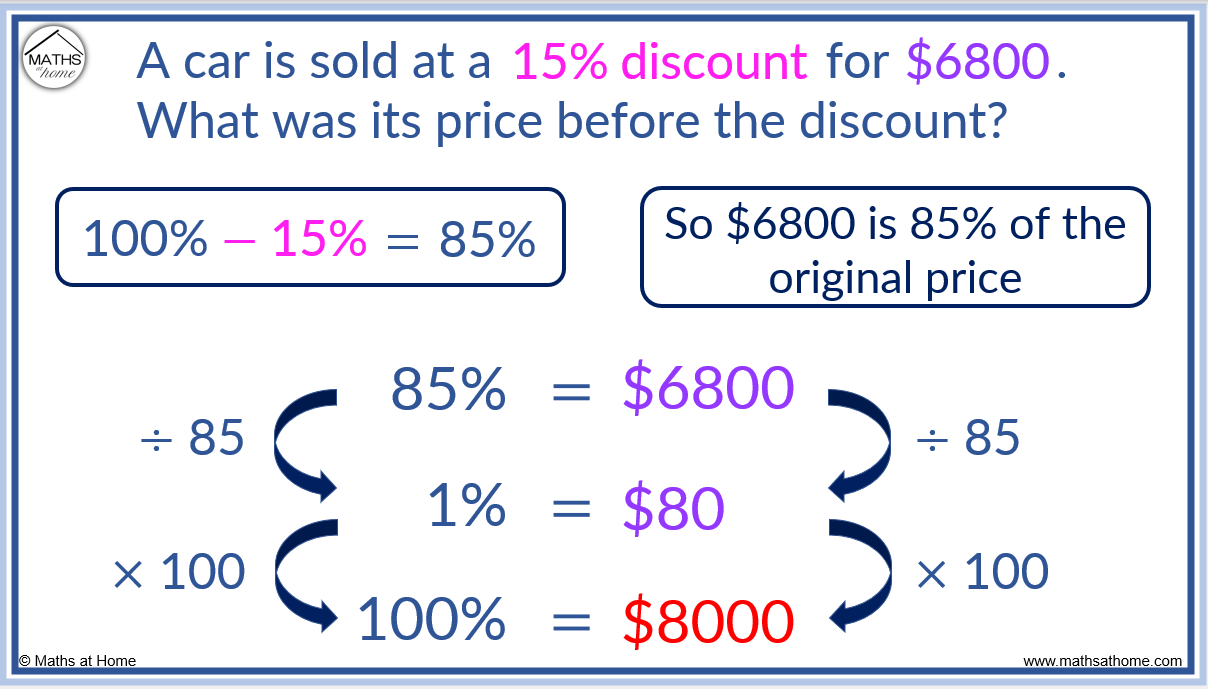
How to Calculate an Original Amount Using Reverse Percentages
Here you will our reverse percentage calculator which will help you to find the original value before a percentage increase or decrease. Our calculators will not only find the original values, but also show you all the working out along the way! Which Reverse Percentage Calculator do I need? Reverse Percentage Calculator 1

Calculating a Reverse Percentage
Step 1: To calculate reverse percentage. Step 2: First divide the two values and multiply the final value by 100. Step 3: Hence, (first value / second value) * 100 = Final Value. Step 4: Lets, consider A as first value and B as second value. Step 5: The Formula for reverse percentage calculation is ( (A / B) * 100) = C. For Example:
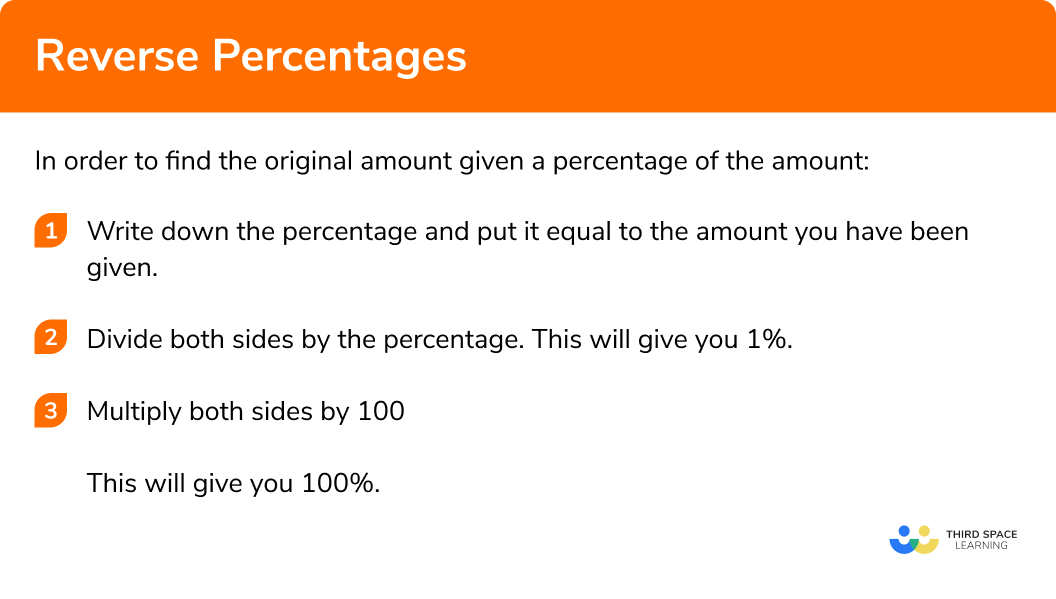
Reverse Percentages GCSE Maths Steps, Examples & Worksheet
To calculate a reverse percentage, convert your percentage by a decimal, divide your final amount by the decimal, then subtract the original amount from the final amount.

Reverse Percentage Calculator Calculator Academy
Reverse percentages (or inverse percentages) means working backwards to find an original amount, given a percentage of that amount. We can do this using a calculator by taking the percentage we have been given, dividing to find 1% and then multiplying by 100 to find 100%.

Calculating a Reverse Percentage
How to Calculate Reverse Tip Percentage. Step1: Convert Percentage to Decimal. Divide the percentage added to the original by 100. For example, if a tip 6 percent was added to the bill to make it $115, work out 15 ÷ 100 = 0.15.. Step2: Add 1 to Decimal. Add 1 to the percentage expressed as a decimal.

How to Calculate an Original Amount Using Reverse Percentages
Then, to calculate the original price before the increase, use reverse percentage to find them. E1.12: Carry out calculations involving reverse percentages. Reverse percentage. The reverse percentage formulation is nothing; however, the percentage system is used to discover the quantity or share of something in a hundred phrases.

Reverse Percentages Corbettmaths YouTube
Step 1. Write the percentage change as a decimal multiplier The original price of the car is 100%. A discount is a percentage decrease therefore we subtract 15% from 100%. 100% - 15% = 85% We now divide this percentage by 100 to write it as a 'decimal multiplier'. 85% ÷ 100 = 0.85 Step 2. Divide the new amount by this decimal multiplier

Reverse Percentages Explained Step by Step Method Worked Example 2 YouTube
Reverse Percentage Calculator x = (100 − %)n ∗ 100 = 125 Inverse Percentage To determine the inverse percentage (or reverse percentage), multiply the number by 100, then divide by 100 minus the subtracted percentage, as shown in the formula.
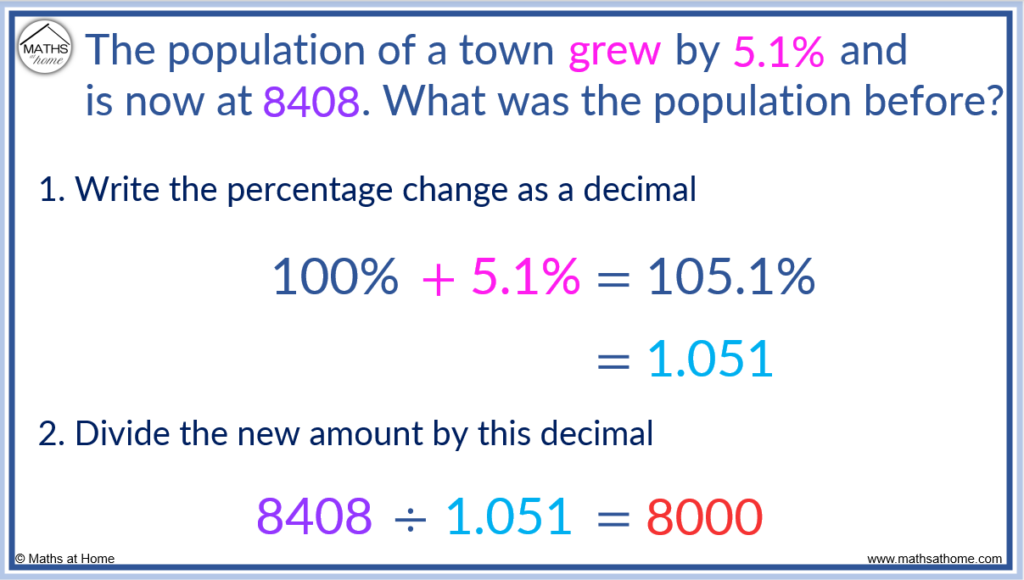
How to Calculate an Original Amount Using Reverse Percentages
The Reverse Percentage Calculator is a tool used to determine the original amount before a certain percentage increase or decrease. This calculator is particularly useful for finding the initial value given the final value and the percentage change. The formula for calculating the original amount using reverse percentages is as follows:

Calculating a Reverse Percentage
Reverse Percentages Calculator This calculator helps you to find the original number, you have been given the final number, and the percentage type (increase or decrease). A 20% Decrease of ____ is 150. For example: if a shirt in a sale marked 20% off costs $150, what is the original price of the shirt?
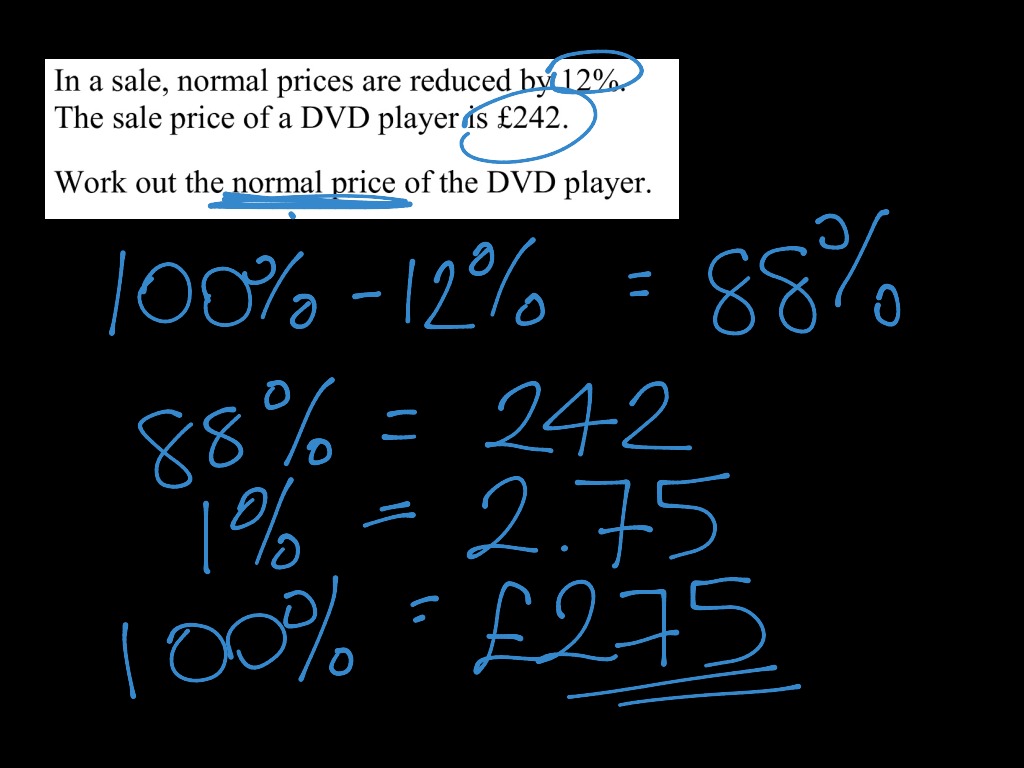
Reverse Percentages Math ShowMe
The full lesson and more can be found on our website at https://mathsathome.com/reverse-percentagesIn this lesson we learn how to calculate reverse percentag.

A reverse percentage calculation YouTube
Our reverse percentage calculator will help you to find the original number. Reverse Percentages Calculator Converting Percentage Calculator If you need to convert a percentage to a fraction - either a decimal fraction or a fraction in its simplest form, then use this calculator.